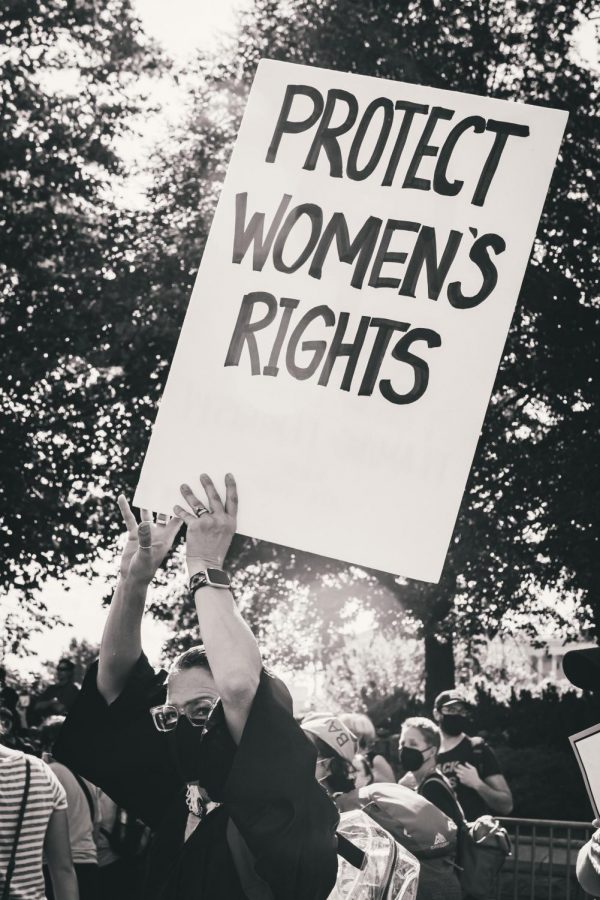Roe v. Wade, among a handful of other historic cases, is considered to be foundational to America’s justice system, with the landmark case being taught in history classes across the US.
But because such cases seem so essential to America today, people often fail to consider that they can be reversed.
This potential for reversal has become a reality as the Supreme Court deliberates on whether or not to overturn the 1973 Roe v. Wade case that legalized abortion.
During recent deliberations, Justice Samuel Alito made the mistake of comparing this case to the Plessy v. Ferguson case. As said in an article from The Atlantic, “he suggested that cases that had been wrongly decided should be reversed without regard for precedent.”
Objection, judge.
This statement is problematic for a number of reasons. Making this claim, Alito is not only inserting his own beliefs and opinions into a discussion that does not need it.
First, Alito uses false equivalence to justify his point. By equating two things that are otherwise not the same, a false reality is created by providing only a segment of the truth. Alito’s comparison is proof of that. Plessy v. Ferguson blatantly condoned racism through segregation and the concept of “separate but equal,” negatively affecting Black Americans.
After people in southern states began to fight against racial segregation in education, the Brown v. Board of Education verdict overturned the Plessy v. Ferguson decision. The Brown v. Board of Education’s decision helped to unify people without violating human rights.
While abortion and racism seem as though they are incomparable, they do have an undeniable relationship.
The decision to have an a abortion is a personal choice that stays between the doctor and the patient. When a person chooses to get an abortion, the abortion only happens to them. Like many other medical procedures, the surrounding people suffer no impact.
An anonymous source explained their fears based on personal experience with abortion. “I think reversing the Roe v. Wade case would take away a woman’s right to make a decision based on circumstances beyond anyone else’s knowledge,” they said. “I knew that having a baby and caring for a baby would take a toll emotionally, mentally and physically, and I don’t think it was selfish to understand that I was not in a place to handle that.”
They continued, “If I chose to have this baby, I would be responsible for what happens to it, and with the foster care system lately, I knew it would be irresponsible to have a baby I wasn’t going to raise and didn’t know if anyone else would.”
The effort to overturn the Roe v. Wade case is especially concerning, considering the likelihood of it happening. Currently, the Supreme Court has six Republicans and just three Democrats.
With abortion being a partisan issue, these odds are unfavorable for reproductive rights.
Brown upheld and reinstated individual liberties just like Roe v. Wade. Taking reproductive rights away and justifying it by comparing Plessy v. Ferguson and Roe v. Wade would belittle women everywhere and send a dangerous message.
As stated perfectly by Sherrilyn Ifill, president and director-counsel of the NAACP Legal Defense and Educational Fund, “[n]othing in the Brown ruling suggested that future Justices should overturn precedent protecting fundamental individual rights…There is certainly nothing in Brown to suggest that such a radical move could be justified simply because of changes in the Court’s membership.”
Former Supreme Court justices are questioning the legitimacy of a Supreme Court that is pushing their own agenda. Sandra Day O’Connor expressed her disdain, even from a conservative perspective. “Our obligation is to define the liberty of all, not to mandate our own moral code,” she said.
From the beginning, the Constitution was always meant to protect a variety of individual liberties belonging to citizens. Female reproductive rights fall into this category. Using the overturning of Plessy v. Ferguson as justification to overturn the Roe v. Wade decision is illogical and wrong.
If Roe v. Wade is overturned, it will may not be done with racist intentions, but it will affect women of color more than white women. Healthcare in the US has failed minority groups repeatedly.
An article from The New York Times encompasses possible consequences. “If the Supreme Court is perceived to be made up of politicians rather than judges, Justice Stephen G. Breyer said, ‘that’s what kills us an American institution.’”
Decisions have yet to be made, and the court has many things to consider. The Supreme Court has never been a place for the judges to dispute their political beliefs but, rather, a place to support the rights of the people protecting their individual liberties despite any backlash.
Essentially, the legitimacy of the Supreme Court is what is at stake.









